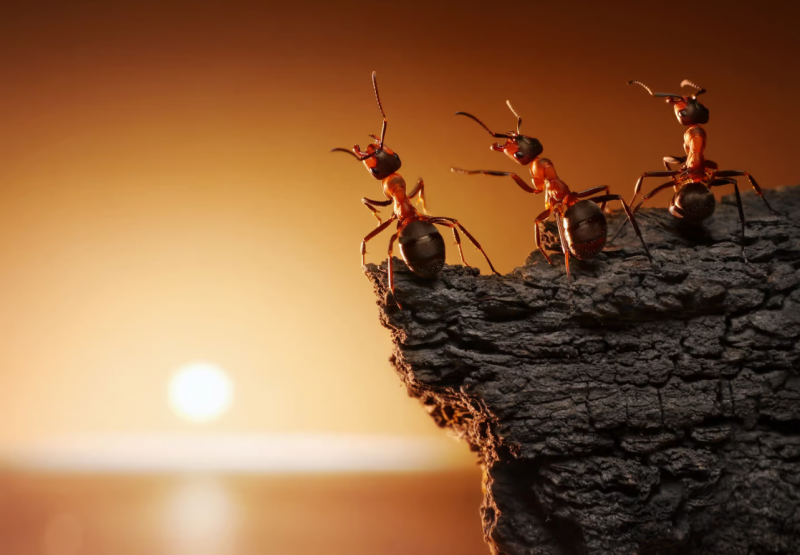Parasite turns hapless ants into zombies at sunrise and sunset
Category: Stranger Than Fiction
Via: hal-a-lujah • last year • 1 commentsBy: Bronwyn Thompson (New Atlas)



Hijacking the body of a convenient host is nothing new in the opportunistic world of parasitism. Nor are zombie ants, thanks to the fittingly named zombie-ant fungus (Ophiocordyceps unilateralis), which has even claimed top prize in photography competitions.
But for the first time, scientists have discovered how one cunning pathogenic flatworm can switch 'zombie mode' on and off, engaging in an intermittent hostile takeover when it best suits them. Researchers from the University of Copenhagen have uncovered an impressively sophisticated modus operandi in the parasitic lancet liver fluke (Dicrocoelium dendriticum), surpassing the survival strategies seen in other organisms that turn their unsuspecting hosts into 'zombies.'
The fluke, which finds a temporary home inside the European red wood ant Formica polyctena, takes control of the insect's brain when the temperature is just right, marching the animal up blades of grass in the hope of hitching a ride through the digestive system of its definitive host, ruminants such as cows, deer or sheep. Then, like flicking a switch, the parasite can let go of the puppet strings and the ant will be roused, dazed, and left to go about its business until the next takeover when conditions cool once more.
"Getting the ants high up in the grass for when cattle or deer graze during the cool morning and evening hours, and then down again to avoid the sun's deadly rays, is quite smart," said Brian Lund Fredensborg, associate professor at Copenhagen University. "Our discovery reveals a parasite that is more sophisticated than we originally believed it to be."
Studying hundreds of infected ants in the Bidstrup Forests, in Denmark, scientists painstakingly attached identification to the insects's abdomen segment in order to study the host-parasite relationship over a longer period. What they found was that when the temperature was low, the infected ants were most likely to be attached to the top of a blade of grass. When temperatures rose, the "switch" would be flicked and the ants would retreat to ground cover.
"We found a clear correlation between temperature and ant behavior," says Fredensborg. "We joked about having found the ants' zombie switch."
Interestingly, despite each infection resulting in hundreds of parasites invading the ant's body, only one takes control of its brain. The rest hide out in the abdomen, waiting for their final destination. Then, the parasite charged with the most important job will die once the mission is complete.
"Here, there can be hundreds of liver flukes waiting for the ant to get them into their next host," said Fredensborg. "They are wrapped in a capsule which protects them from the consequent host's stomach acid, while the liver fluke that took control of the ant, dies. You could say that it sacrifices itself for the others."
Because of its highly specialized host strategy - the fluke first infects land snails, which graze on cattle feces, then the ant, via an irresistible ball of larval mucous (well, for ants anyway) - human infection is rare. However, the parasite can cause liver damage in mammals and is found throughout the world.
The study is an important one for researchers, given the inherent difficulties in studying animal behavior in these complex organisms.
"Historically, parasites have never really been focused on that much, despite there being scientific sources which say that parasitism is the most widespread life form," says Fredensborg. "This is in part due to the fact that parasites are quite difficult to study. Nevertheless, the hidden world of parasites forms a significant part of biodiversity, and by changing the host's behavior, they can help determine who eats what in nature. That's why they're important for us to understand."
Next, the team hopes to understand the mechanism that lets the parasite hijack the ant's brain so effectively.
"We now know that temperature determines when the parasite will take over an ant's brain," Fredensborg added. "But we still need to figure out which cocktail of chemical substances the parasite uses to turn ants into zombies."

Tags
Who is online
445 visitors

So much crazy shit about nature that has yet to be discovered.